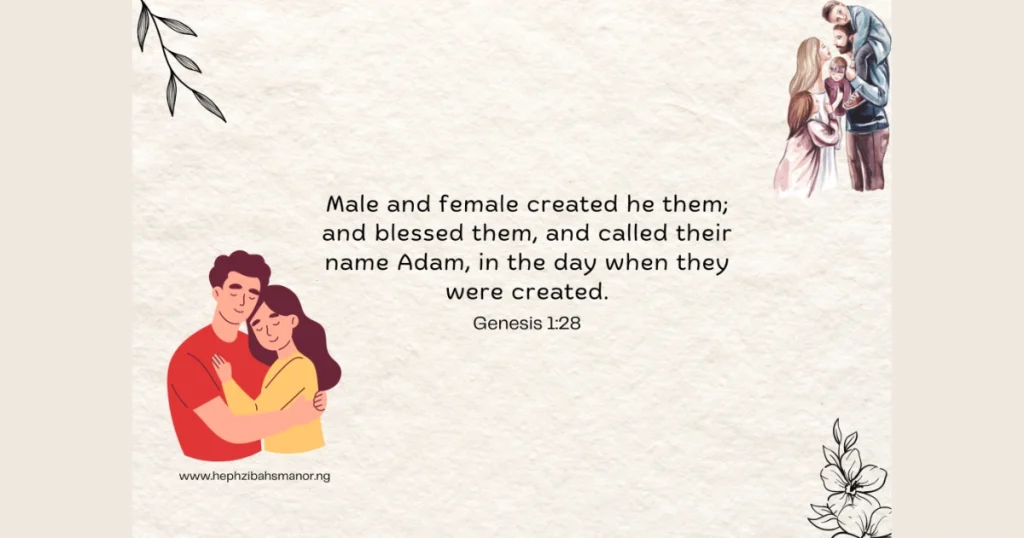“Whoever has no rule over his own spirit is like a city broken down, without walls.” (Proverbs 25:28)
One day, in a supermarket, I witnessed a typical toddler meltdown situation. This child was sitting on the floor, screaming at the top of his lungs, tears streaming down his face. His mother looked like she wanted the earth to just open up and swallow her. Some people stared, some judged, some whispered. A few sighed loudly, while others gave that familiar “Eeya, pele, I’ve been there” look.
I could feel her panic. It felt like I could hear that silent prayer we mothers sometimes mutter, “Lord, please, not here, not now.”
Meltdowns are hard.
They’re harder in public.
They’re hardest when we feel judged, embarrassed, or overwhelmed.
But here’s the thing: meltdowns are not the real problem. They are expressions of big emotions from little bodies still learning what to do with all that energy, confusion, hunger, fatigue, or frustration.
Emotions Are Not the Problem, Uncontrolled Emotions Are
Ephesians 4:26 says, “Be angry and do not sin.”
The real question is: How do we respond when our children lose emotional control?
Whether child or adult, we all feel emotions; anger, sadness, frustration, desire, hunger, fear. These are not inherently sinful. For example, the Bible acknowledges that anger is a valid emotion, it’s the expression and management of it that makes all the difference.
Unchecked hunger can lead to gluttony.
Unchecked anger can lead to violence.
Every sin starts with a feeling, an emotion left unchecked.
This is what God was warning Cain about in Genesis 4:7: He said: “Sin is crouching at your door. It desires to have you, but you must rule over it.” It’s almost as though God was saying: “Cain, your feelings are valid. But if you don’t manage them, they’ll destroy you.”
Jesus Christ, in the Garden of Gethsemane felt deep emotional turmoil, even to the point of sorrow and fear about going to the cross (Matthew 26:38). But He didn’t let those emotions control Him. Instead, He submitted them to God, saying: “Not my will, but Yours be done” (Luke 22:42).
This shows us that it’s not wrong to feel emotions, what matters is how we respond to them. Teaching children to manage their emotions is about helping them understand that they don’t have to act on every feeling, but can submit them to God, to His purpose and will.
When we help our children manage emotions, we’re not just teaching good behaviour, we’re building spiritual stamina and self-control, one of the fruits of the Spirit (Galatians 5:22–23).
Even more, we are giving them a foundation for ruling over sin and its desires. We are teaching them to walk by the Spirit. Galatians 5:16 says “but I say, walk by the Spirit, and you will not gratify the desires of the flesh.” If we fail to teach our children this foundational biblical principle now, how to yield to the Spirit and not be ruled by the desires of the flesh, we risk raising men and women who:
- Give in easily to sinful desires
- Act on every impulse without discernment
- Are swayed by every passing emotion
- Remain spiritually and emotionally unstable
The end of such a life is most certainly death. Romans 8:12–13 says: “Therefore, brothers and sisters, we have an obligation, but it is not to the flesh, to live according to it. For if you live according to the flesh, you will die; but if by the Spirit you put to death the misdeeds of the body, you will live.
David’s Rooftop Failure: A Lesson in Unchecked Emotions (2 Samuel 11)
David saw a beautiful woman on a rooftop; emotion was stirred.
Desire led to lust.
Lust led to adultery.
Then fear, panic, shame (all unchecked emotions) led him to orchestrate a murder.
Sin didn’t begin with the act.
It began with an emotion left unchecked.
This is why we must teach our children that self-control matters not just in battle, but in the quiet of our soul.
When Children Melt Down, How Parents Often Respond

I know how it feels.
The rising heat in your chest.
The eyes watching.
The shame.
The feeling that you need to shut it down quickly so people don’t assume you’re a lazy or unserious mother. And so, we sometimes lash out, threaten, bribe, or even say things like:
“You’re embarrassing me!”
“If you don’t stop crying now…”
“Big boys don’t cry.”
“What is wrong with you?”
But all this does is suppress the child’s emotions without helping them understand what’s happening inside. We’re not teaching control, we’re demanding compliance. Instead, we should be asking:
What are they feeling?
How can I help them name it, navigate it, and not be ruled by it?
How We Ought to Respond: Spirit-Led Parenting
A meltdown is not just a noise, it’s a message. Sometimes it’s:
I’m tired.
I’m hungry.
I’m overwhelmed.
I don’t know what to do with what I’m feeling.
If they are going to learn how to deal with their big feelings, we must meet their emotional chaos with spiritual calm. This doesn’t mean we let them misbehave. It means we train them, just like Hebrews 12:11 says discipline is for training, not punishment. The goal isn’t just silence, it’s wisdom.
How? Validate Their Feelings! It’s Not Modern Day Parenting, It’s Scriptural
- Get to their eye level and speak calmly but firmly.
- Acknowledge the feeling: “I know you’re upset.”
- Offer choices when possible: “Would you like to sit quietly here or in the car?”
- Teach language for emotions: “Are you sad? Angry? Frustrated?”
- Walk them through better responses next time.
This process takes time, but brick by brick, you’re building a city with walls. A child with inner strength. And no, this is not modern parenting! This is how God parents us. Many parents, out of frustration or cultural conditioning, detach when kids are overwhelmed. They shut down, yell from a distance, or act like emotions are a woman’s thing. But children need to see us model emotional strength.
When we validate our children’s emotions without overreacting, we teach them that feelings are not weaknesses but a natural part of being human. God Himself validated Cain’s emotions when He asked,
“Why are you angry?
Why is your face downcast?” (Genesis 4:6).
God didn’t condemn Cain for feeling anger and frustration. Instead, He pointed out the way forward, saying, “If you do what is right, will you not be accepted?” (Genesis 4:7).
He gave Cain the chance to choose how to respond to his emotions. I believe that if Cain had chosen to surrender his feelings, his anger to God, just as Jesus Christ did in the Garden of Gethsemane by asking for God’s help and submitting his emotions to God’s will, it’s very likely he wouldn’t have made the tragic decision to kill his brother.
When we mishandle Emotional moments, children often learn to:
- Suppress emotions (especially boys).
- Feel unsafe sharing how they feel.
- Turn to anger as the only acceptable outlet.
At the end of the day, it’s not about stopping the meltdown, or getting them to “behave themselves”, it’s about teaching our children how to handle their emotions. Yes, feelings are real and valid, but they don’t need to control us. By helping them name their emotions and respond wisely, we’re not just calming the storm, we’re building in them emotional strength that will last a lifetime. They’ll grow into adults who can handle whatever life throws their way. Parenting isn’t about perfection, it’s about progress. So, even when the meltdown feels like the end of the world, remember: you’re building something strong in your child, one small moment at a time.
Confessions
Parents
- Thank you Lord for entrusting me with the sacred task of stewarding my children’s hearts. I declare that by Your grace, i will train the, in love and truth and teach them ti manage their emotions according to your word. (Proverbs 22:6)
- I speak peace over my home. Even when tempers rise, I choose to remain calm, because I know You are my peace. I will model self-control and emotional wisdom for my children. (Galatians 5:22–23)
- My children will not be ruled by their feelings. By Your grace, Lord, they will grow in self-discipline and learn to govern their spirits. (Proverbs 25:28)
- I trust You to give me insight and patience as I nurture their emotional growth. I will teach them to cast their cares on You and align their hearts with Your will. (1 Peter 5:7)
- I am not parenting alone. The Lord equips me with strength, wisdom and understanding. I declare that my words and responses will be filled with grace and the truth of God’s word. (James 1:5)
Children

- I am learning to listen to my feelings without letting them control me. The Holy Spirit empowers me to respond with wisdom and self-control. (Romans 8:13)
- When emotions rise, I turn to God in prayer. He helps me understand what I’m feeling and guides me to respond in peace. (Philippians 4:6–7)
- I choose to yield my emotions to the Holy Spirit. Even when frustration comes, I trust Him to help me make godly choices. (Galatians 5:16)
- In moments of confusion or overwhelm, I remember: God is with me. He strengthens me and fills my heart with calm. (Isaiah 41:10)






